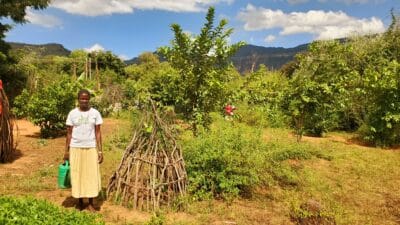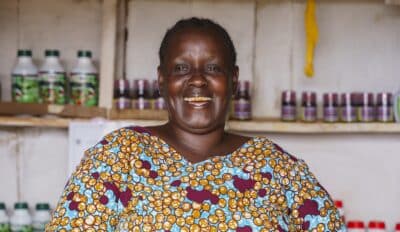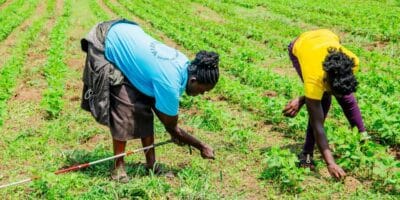Expert view
4 July 2019
Why climate change should matter to you
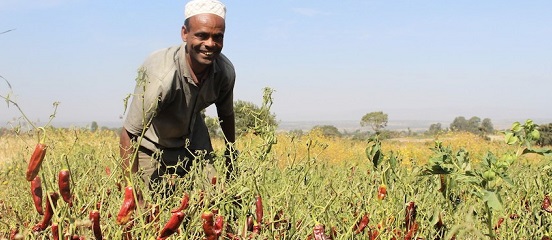
By Lilli Palmer, work experience student
By 2090, the global temperature may have risen by over four degrees. Why? Climate change. We’ve all heard of climate change (thousands and thousands of times) and the detrimental impacts caused by it: sea level rise, global warming, intense rainfall and drought.
Although awareness of the issue is spreading and schoolchildren (including myself) have marched for the cause most Fridays this year, individuals, on the whole, are failing to act ethically and responsibly. When in the fact, they’re responsible.
Human activity is the main cause of climate change. Industry influences climate change – burning fossil fuels increases C02 emissions which, as a greenhouse gas, contributes to global warming.
This isn’t just another rant about the dire situation we’re in but a rant about how the actions of developed countries have only added to the existing injustices between isolated, off-grid regions and the Western world. The polluters aren’t paying the price; those who have contributed so little to climate change are.
In Africa, rainfall has increased in intensity since the 1960s, resulting in a higher probability of flooding and in other areas, drier conditions and drought. African farmers’ food security and livelihoods are under threat as they face multiple crop failures and are unable to sustain an income. Clearly, African smallholder farmers are more vulnerable to the impacts of climate change than those most responsible for causing it.
As a year 12 student, I had the opportunity to undertake work experience this week at Farm Africa, a charity that is working to build resilience in farming communities across eastern Africa to climate extremes.
In Ethiopia, Farm Africa’s climate-smart agriculture project has introduced farmers to drought-tolerant crops, crop rotation and intercropping (when two plants with different resource needs are planted together), which can lessen the impacts on yields in extreme weather conditions. Not only is the project focused on maximising profit and productivity, it focuses on sustainable farming, which aims to minimise greenhouse gas emissions. By protecting forests and natural sinks more carbon will be absorbed.
By adapting to environmental changes, African smallholder farmers can continue to drive more business catalysing economic growth.
In Tanzania, many people living close to forests have become reliant on deforestation to make a living. Local people sell timber for firewood and clear forested land for livestock. Scientists recognise the dangers – believing that halting deforestation is ‘’just as urgent’’ as reducing the use of fossil fuels. If forests are protected 18% of emissions would be reduced by 2030. If they aren’t, three trillion tonnes of carbon could be released.
Farm Africa recognises the urgency of promoting sustainable ways for farmers to work whilst driving business and profit. In the Nou Forest, Tanzania, Farm Africa has worked with farmers developing forest-friendly enterprises like mushroom farming, bee-keeping and tree nurseries. They also helped the community to map the forest and its resources so that trees can be better preserved.
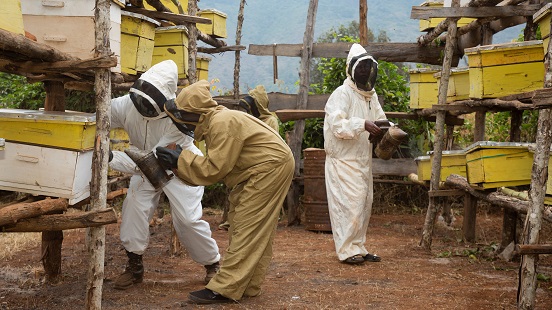
I’ve enjoyed learning about Farm Africa’s work this week and hope that I can work for an organisation like this helping those most impacted by environmental change.
But action in the communities most affected by climate change is not nearly enough.
It is important to recognise the disparity and injustices between climate change’s minimal impacts on the environment in the UK so far compared to the extensive and extreme weather patterns in the developing world. It’s a postcode lottery. We should feel guilty for our actions. Yet, we continue to create careless clouds of pollution.
We all know why and how we need to make a change. But that often leaves us feeling overwhelmed, demanding a ‘system change’ and insisting that the government invests in renewable energy. Of course, that is essential. But, what’s important is us making small changes (turning off the light, eating less red meat and using public transport).
We all think that what we do individually doesn’t make a difference, allowing us to be complacent. Quit thinking that. Just because we aren’t experiencing the impacts here to such an extent, we shouldn’t disengage. It’s our fault, not those who are bearing the brunt of the impacts of climate change.
We should make changes as it’s our responsibility to mitigate the future impacts of climate change and, meanwhile, protect vulnerable communities.
